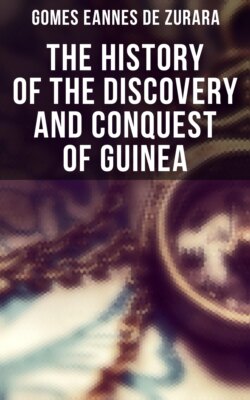Читать книгу The History of the Discovery and Conquest of Guinea - Gomes Eannes de Zurara - Страница 16
На сайте Литреса книга снята с продажи.
CHAPTER VIII.
ОглавлениеTable of Contents
Why ships had not hitherto dared to pass beyond Cape Bojador.
So the Infant, moved by these reasons, which you have already heard, began to make ready his ships and his people, as the needs of the case required; but this much you may learn, that although he sent out many times, not only ordinary men, but such as by their experience in great deeds of war were of foremost name in the profession of arms, yet there was not one who dared to pass that Cape of Bojador and learn about the land beyond it, as the Infant wished. And to say the truth this was not from cowardice or want of good will, but from the novelty of the thing and the wide-spread and ancient rumour about this Cape, that had been cherished by the mariners of Spain from generation to generation. And although this proved to be deceitful, yet since the hazarding of this attempt seemed to threaten the last evil of all, there was great doubt as to who would be the first to risk his life in such a venture. How are we, men said, to pass the bounds that our fathers set up, or what profit can result to the Infant from the perdition of our souls as well as of our bodies—for of a truth by daring any further we shall become wilful murderers of ourselves? Have there not been in Spain other princes and lords as covetous perchance of this honour as the Infant? For certainly it cannot be presumed that among so many noble men who did such great and lofty deeds for the glory of their memory, there had not been one to dare this deed. But being satisfied of the peril, and seeing no hope of honour or profit, they left off the attempt. For, said the mariners, this much is clear, that beyond this Cape there is no race of men nor place of inhabitants: nor is the land less sandy than the deserts of Libya, where there is no water, no tree, no green herb—and the sea so shallow that a whole league from land it is only a fathom deep, while the currents are so terrible that no ship having once passed the Cape, will ever be able to return.49
Therefore our forefathers never attempted to pass it: and of a surety their knowledge of the lands beyond was not a little dark, as they knew not how to set them down on the charts, by which man controls all the seas that can be navigated. Now what sort of a ship's captain would he be who, with such doubts placed before him by those to whom he might reasonably yield credence and authority, and with such certain prospect of death before his eyes, could venture the trial of such a bold feat as that? O thou Virgin Themis, saith our Author, who among the nine Muses of Mount Parnassus didst possess the especial right of searching out the secrets of Apollo's cave, I doubt whether thy fears were as great at putting thy feet on that sacred table where the divine revelations afflicted thee little less than death, as the terrors of these mariners of ours, threatened not only by fear but by its shadow, whose great deceit was the cause of very great expenses. For during twelve years the Infant continued steadily at this labour of his, ordering out his ships every year to those parts, not without great loss of revenue, and never finding any who dared to make that passage. Yet they did not return wholly without honour, for as an atonement for their failure to carry out more fully their Lord's wishes, some made descents upon the coasts of Granada and others voyaged along the Levant Seas, where they took great booty of the Infidels, with which they returned to the Kingdom very honourably.50
